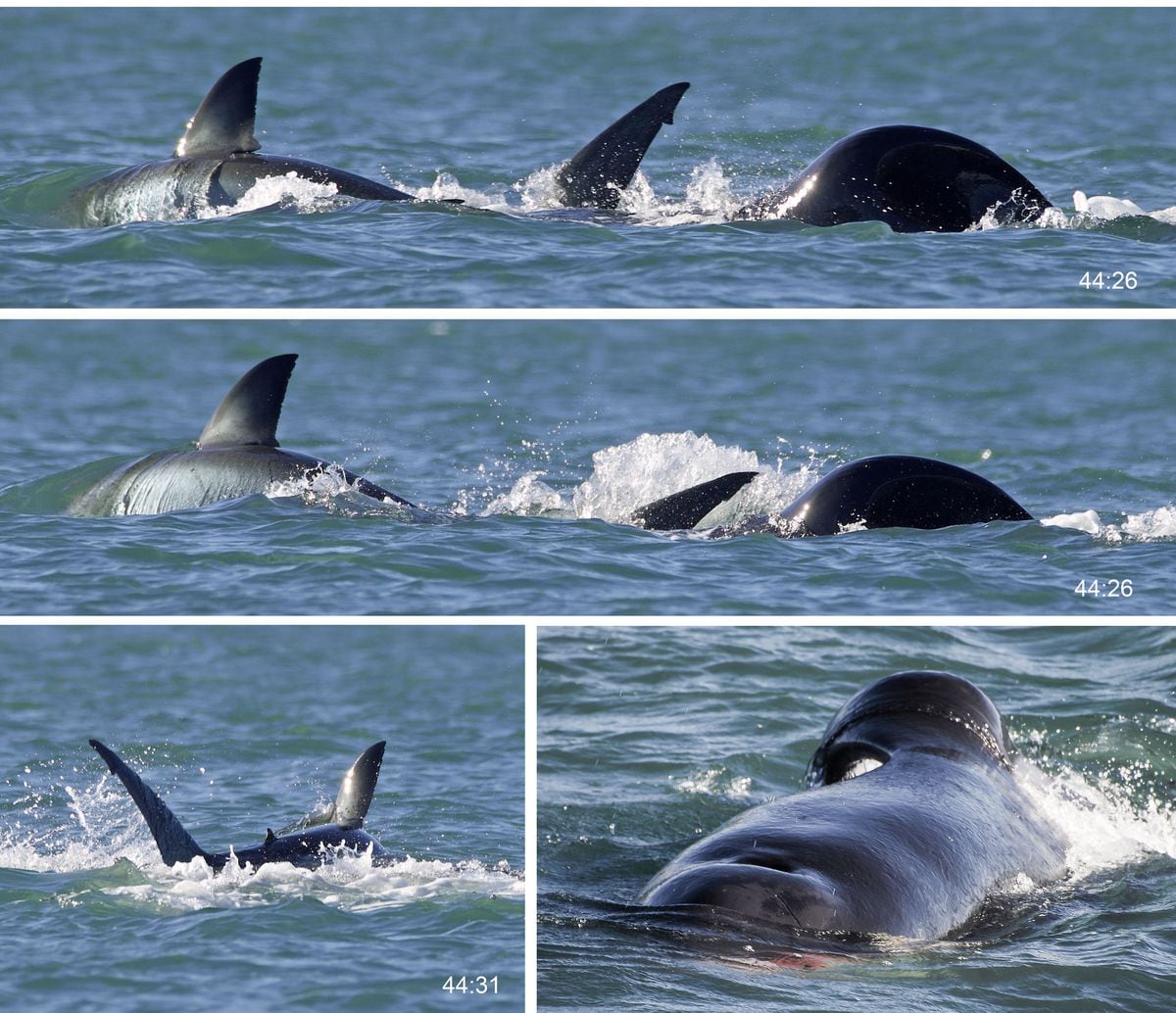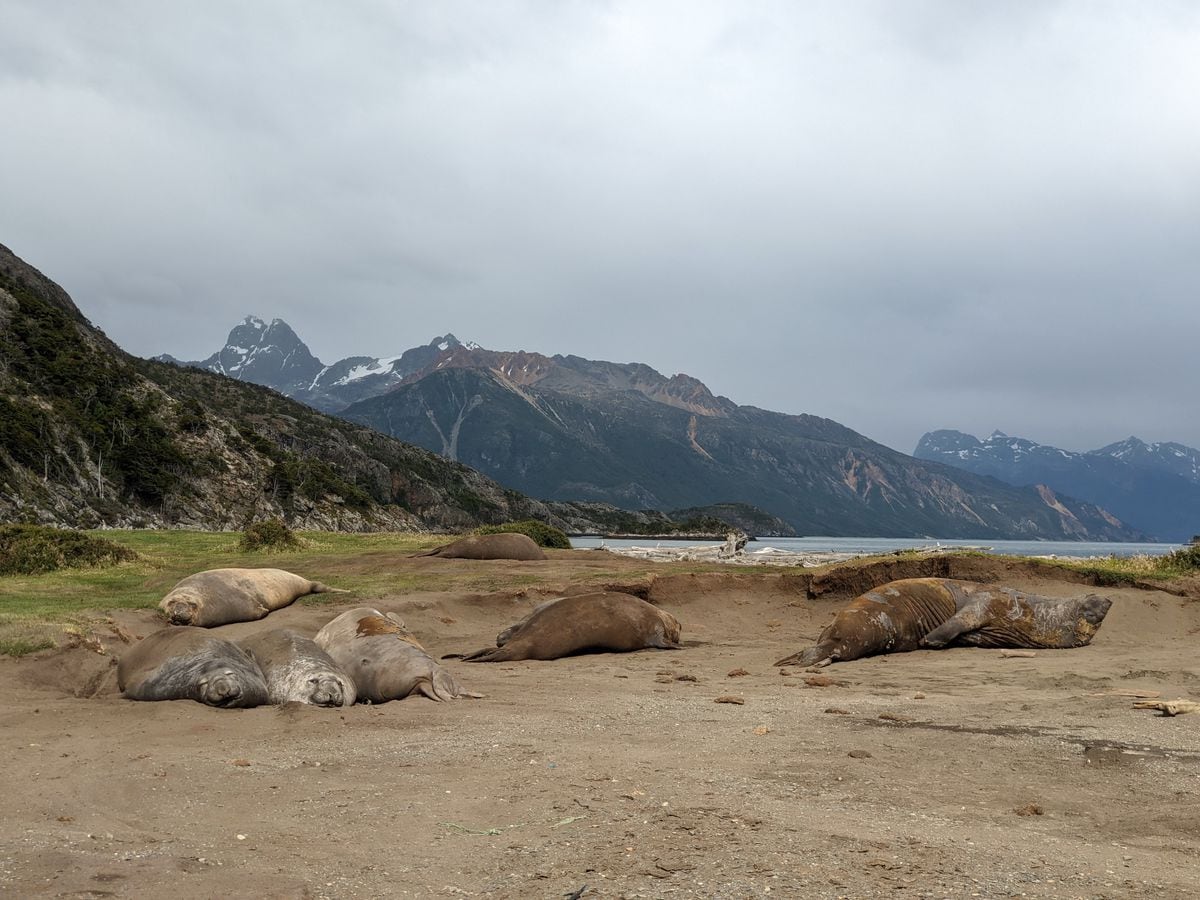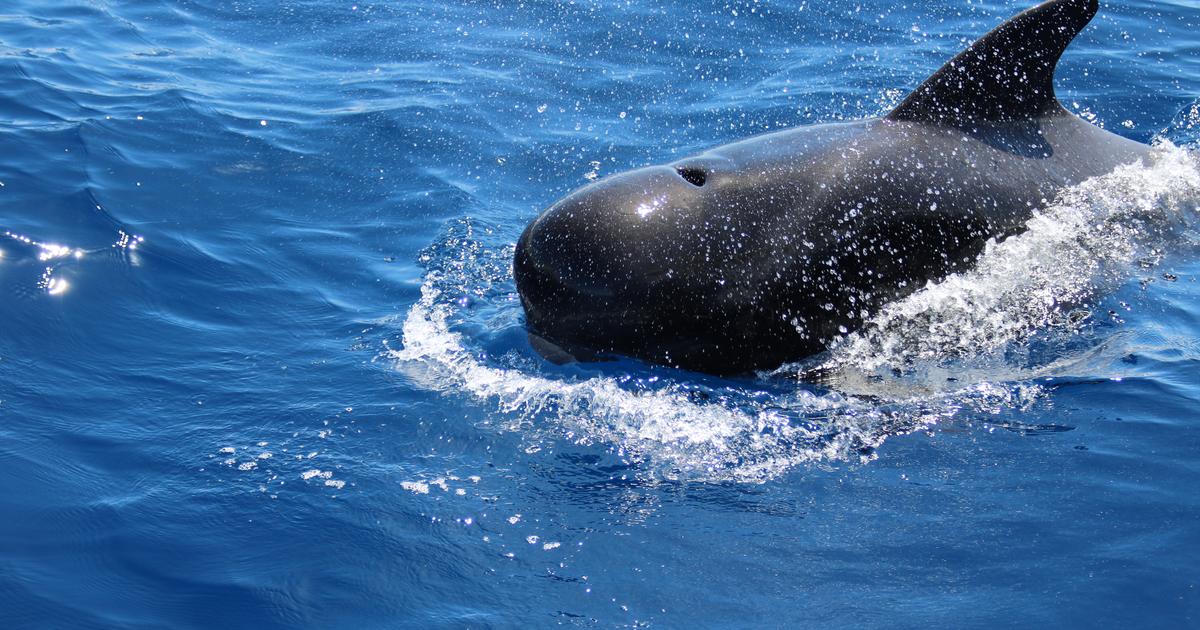Icon: enlarge
The researchers observed negative effects of noise in over 90 percent of marine mammals.
Photo: Ian Montgomery / EyeEm / Getty Images
On land, nature noises are a pleasant habit: the chirping of birds, the rustling of wind, the crackling in the undergrowth.
The background noise of the oceans, however, is a mystery for humans.
There are animal species that create very special soundscapes.
Just like on land, they communicate with each other, for example when mating or foraging.
People are getting more and more confused with this sensitive world of noise, as an international research team writes in the journal “Science”.
In their inventory, the more than two dozen scientists from eleven countries show how fisheries, shipping and offshore parks cause serious damage to animals.
For this purpose, the researchers evaluated around 10,000 studies.
Their conclusion: it is getting louder and louder in the oceans.
The noise pollution caused by humans only began around 200 years ago with the industrial revolution.
Before, only seaquakes, underwater volcanoes or the cracking of ice disturbed the sound idyll.
Noise cacophony with air guns and dynamite
The noise pollution of marine animals has many causes: Expeditions use seismic compressed air cannons - also known as airguns - to search the sea floor for mineral resources.
They emit loud shots over a wide frequency spectrum, the echoes of which provide information about the nature of the ground.
The military uses sound pulses to locate submarines, for example.
In addition, more and more ships are cruising the oceans, mineral resources are being extracted from the bottom and dynamite is being used in many coastal regions of Southeast Asia and Africa.
The energy transition is also contributing to a higher level of noise: When building drilling rigs and offshore wind farms, anchors are rammed into the seabed.
"Over the past 50 years, increased shipping traffic has increased low-frequency noise along the main routes by an estimated 32-fold," the authors write in the study.
The human noise superimposed the animal sounds many times over.
The director of the Alfred Wegener Institute (AWI), Antje Boetius, recorded noises deep below the surface of the water in both polar regions - including in the Fram Strait between North Greenland and Spitzbergen: »On the recordings you can constantly hear the sound waves from search technologies for oil and gas «, says Boetius.
When the noise occasionally falls silent - for example at Christmas - a completely different soundscape emerges: "Only then can you hear nature itself, for example the variety of whales singing."
Seals and porpoises that are hard of hearing
According to the researchers, the constant exposure also changes the behavior of the animals and makes them sick.
The consequences can be observed in 80 percent of fish and invertebrates, and in marine mammals it is even 90 percent.
Sonic cannons used to search for raw materials could sometimes cause permanent hearing damage in marine life, says AWI researcher Ilse van Opzeeland.
This has been proven in harbor porpoises and seals, for example.
Quite a few species flee from human noise to calmer waters.
For many marine animals, however, this is not possible, write the study authors.
For example, the Maui dolphin native to New Zealand, which is critically endangered.
The "Science" report does not mention whale strandings, which environmental groups often associate with underwater noise.
However, there is no clear evidence of the killing by sound, says AWI Director Boetius.
Because often dead marine mammals also have stomachs full of garbage.
Cases are known in which whales and bottlenose dolphins perished as a result of military exercises or dynamite fishing.
But there is no evidence that noise directly increases the mortality of marine life.
Other consequences, however, are "very well documented".
Researchers call for noise protection for the seas
So far, noise has been ignored in international agreements such as the Convention on Biological Diversity (CBD), criticize the study authors.
"The topic is not so prominent because it is not as visible to people as a beach full of plastic waste," says Boetius.
The researchers cite the European Union's Marine Strategy Framework Directive as an exception: It expressly recognizes noise as a stress factor and calls on the member states to monitor and reduce noise pollution.
"The Antarctic Treaty also contains many conditions - not only for access for ships, but also for the exploration of resources - even for sound-wave-based research," says Boetius.
For comprehensive noise protection in the sea, the researchers recommend regulating shipping routes and speed limits.
In the future, electric motors or quieter propellers could also reduce ship noise.
The noise from the construction of offshore wind farms can be reduced with technical measures such as bubble curtains - a kind of protective layer made of artificially created bubbles in the water.
Because the harbor porpoise has already been expelled from many areas of the North Sea, it is now mandatory in German waters to dampen the noise when driving the piles into the seabed.
Icon: The mirror
sug / dpa







